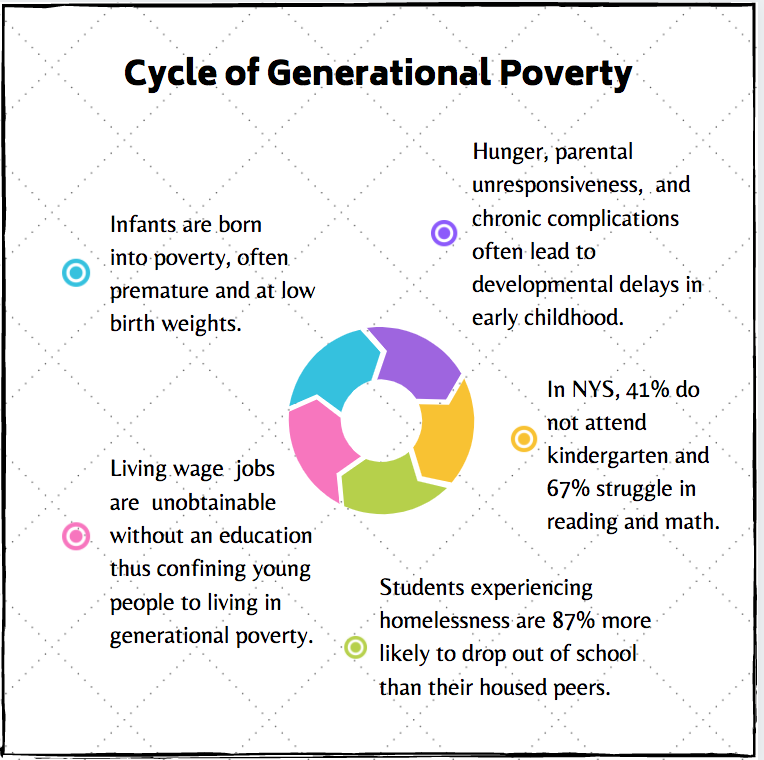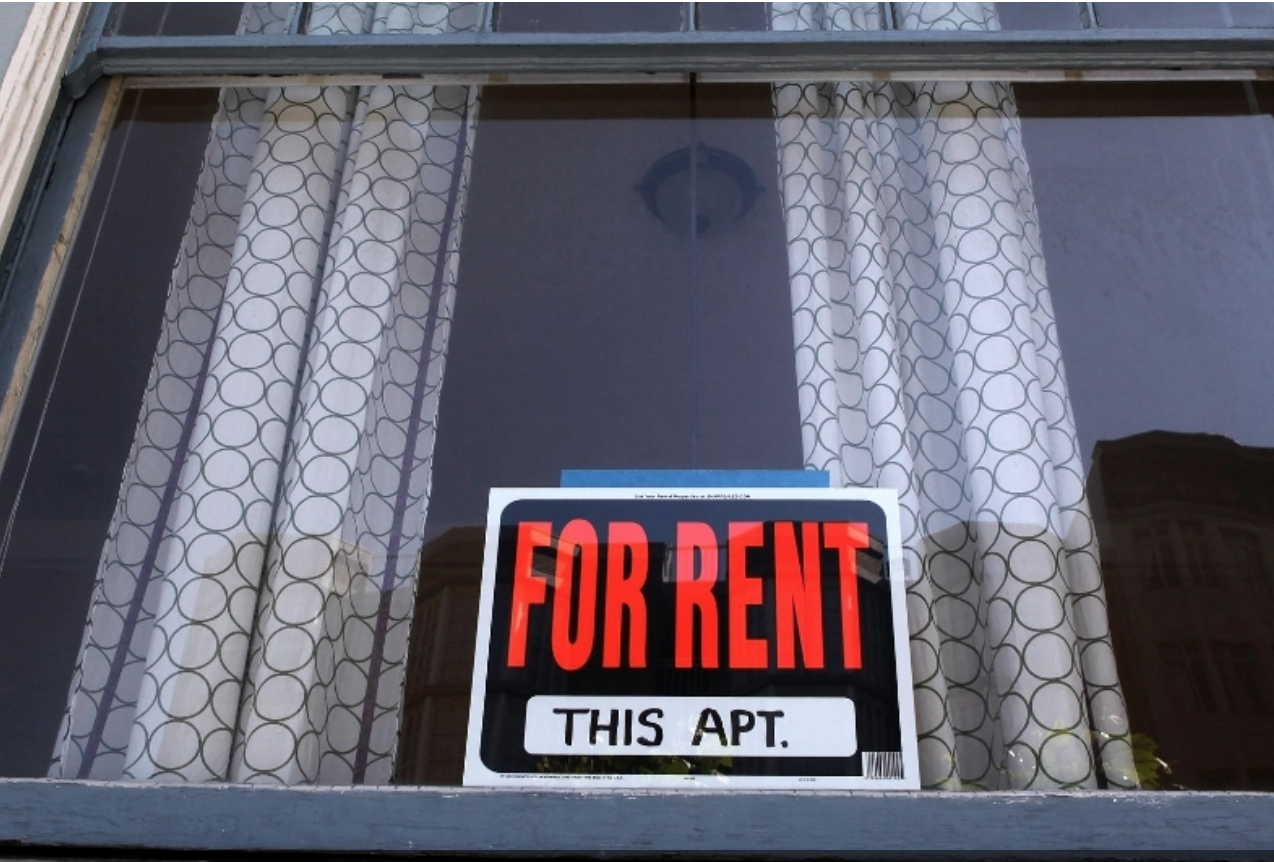
The Problem
Homeless young mothers experience unique challenges
Women and children represent the fastest growing groups of homeless population in the Long Island Metro area.
Of the 3,787 people experiencing homelessness on Long Island, almost 3/4 of this population is made up of homeless families. And, of this, 38% are led by a young, single mother with little to no financial or emotional support.
A Two-Generation Problem…
Young homeless women are 5x more likely to experience unplanned pregnancies. Many lack support from their families and from their partners. And due to pregnancy at a young age, suffer isolation from friends. Without the security of a safe and supportive home, there is tremendous physical and emotional stress on a young pregnant woman. Furthermore, homelessness endangers the health of a mother and that of her unborn child. Research suggests that the struggles of children growing up in single-parent households go well beyond just economics, and that those children are more likely to drop out of school and detach from higher education and workforce opportunities, and are more likely to become teen parents as well. Their parents – both mothers and fathers – face similar challenges.
Lack of Prenatal Care
Homeless young women are almost five times more likely to become pregnant than housed young women. Sadly, they they often experience neglect, sexual abuse, domestic instability, violence, and persistent poverty. Homeless women more often than not do not seek prenatal care as early as housed women and therefore are at increased risk of pregnancy complications including preterm labor, premature birth, low-birth weight, and other delivery complications and infections. A jarring statistic is that homeless young pregnant women are 3x more likely not to seek medical attention when complications arise.
Lack of Support
The challenge for many young women who are pregnant and or caring for a child is worsened by the lack of family and community support. Although the research shows that pregnant women and young parents often seek and receive support, many homeless youth providers do not serve pregnant and or parenting youth, and many family shelter providers do not serve or are not designed for youth mothers. This population needs the right care and expert assistance to achieve a secure future for themselves and their children. Without it, many young mothers, living in crisis, go untreated for the trauma and other issues which have contributed to their homelessness.
Lack of Opportunity
For the 4.2 million young homeless adults opportunities to develop and realize their educational aspirations are often disrupted. Almost 70% of teen girls who give birth leave school. Without support and help, a teen mother is less likely to finish high school, further her education and pursue a career. Not only does teen pregnancy pose a health risk to both mother and child, it also has social consequences, like continuing the cycle of poverty. Furthermore, lack of quality child care is a common barrier which prohibits a young mother’s ability to attend school and vocational training as well as seek full time employment.
Lack of Life Skills
Life skills are important for youth to acquire to become self-sufficient adults. Life skills include daily living activities such as personal hygiene, meal preparation, food shopping, cleaning, laundry, money management and more. Other essential skills including goal attainment, time & stress management, conflict resolution, coping techniques, communication, healthy relationships and safety practices. Transience and a lack of structure often prevent homeless youth from acquiring these skills. They often move from different shelters to access needed services. While, shelters provide housing, meals, and referrals for various social and medical services, far less emphasis is directed toward developing life skills for sustained success.
Lack of Parenting Skills
Young women who enter our doors, come to us with hardly any point of reference as it pertains to parenting. They are in crisis and in survival mode, ill-equipped emotionally, psychologically and financially to embrace motherhood. Lack of parents’ attention, especially in early childhood years, may negatively impact the child’s personality and their future in the long run. Parental training is critical, but it cannot be done in isolation. Sleek & Staff (1998) found in a research that, ‘improved parenting can lead to better child outcomes, but only if other needs in a family’s life are also addressed such as shelter and basic needs. Young homeless mothers need assistance from breastfeeding to balancing work, school and family.
Lack of Affordable Housing
If renting an apartment on Long Island is difficult for an adult progressing out of poverty, there are even fewer options for a single youth mother with interrupted education, no credit, earning minimum wage or without any income outside of public assistance. The minimum hourly wage in Long Island is $13. The monthly income needed to afford a modest standard of living is $7,662 or $48/hr. which is 295% greater than the minimum wage. Sadly, many young mothers find themselves with limited choices. Solutions are often short term and unstable. It’s not unusual to see women hopping from shelter to shelter, or homes to shelters and back, with kids in tow. Long-term, structured and safe housing options are scarce.
Here is where MOMMAS House helps…. CLICK HERE!







